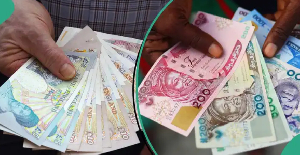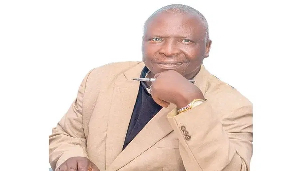There was this conversation between President Muhammadu Buhari and Al Jazeera television held in Quatar in March, 2016.
That interview explains the imperialness, the Kabiyesi-ness in Buhari and his feudal reasoning which often clashes with the constitutional requirements of his office as president of Nigeria.
It also rubbishes Nigerians’ hoopla against the president’s oft recourse to medical exile in the United Kingdom at the drop of a hat. The conversation came at the height of a foreign exchange crisis that the Buhari government sank Nigeria into.
Sitting regally like the Emir of Daura on a gold-plated chair, in the front of Martine Dennis, his Al Jazeera interviewer, she had asked him how parents whose wards were schooling abroad would cope with the then scarcity of forex and its huge worth. Boldly, Martine had asked: “What about those who are slightly more privileged like yourself… You’ve got children studying abroad.
There are parents in Nigeria with kids in universities and schools abroad, who are now facing the possibility of having to pull their kids out.
They can actually no longer afford to pay for school fees?” And Buhari replied: “If the country cannot afford it, so be it.” Fazed by the scant human feeling in the reply and unsatisfied with the curt reply, Martine further pursued, cheekily:
“But your children will continue their studies, no doubt?” Buhari then replied: “Those who can afford it can still afford it. But for those who can’t, Nigeria cannot afford to allocate foreign exchange for those who decided to train their children outside the country.
We can’t just afford it.” Cheekily again, Martine blurted, “So it’s tough luck?”
And the General’s last word, indicative of finality on that unconscionable questioning was, “Well, that’s the true situation we are in.” As if Martine was a seer, many Nigerian parents actually withdrew their wards from those foreign schools.
Apart from the feudal nature of the Daura where he grew up, Buhari was, for decades, a military man, nurtured on the maxim that might is right.
Democracy and constitutionalism were alien constructs in the barracks. The military officer was always right and woe betides any subaltern who queried his judgment.
So why these disgruntled noises all over the place? Like Buhari, in The President Is A Sick Man: Buhari’s Secret Therapy Inside the ‘Oneida’ (April 4, 2021) I detailed African leaders who have made the west their infirmary.
Last week, when that unsettling photograph of Buhari and All Progressives Congress (APC) National Leader, Asiwaju Bola Tinubu, issued from their UK convalescent home, majestically colonized the social media space, like ants gradually constructing an anthill, Al Jazeera’s Martine Dennis constructed a profiling of Buhari in my mind.
In different postures, Buhari and Tinubu, two very consequential Nigerian leaders who, like any other mortal, are rumoured to be battling life’s unkind health cudgel, smiled resplendently in the photograph.
This was apparently to cushion whatever pain emanating from whatever ails them.
And simultaneously, three persons crept into my subconscious – New York’s departing governor, Andrew Cuomo; Helen Zille and exPresident Jacob Zuma of South Africa.
Why would Buhari and Tinubu choose to hibernate in a UK infirmary to look up their health at a time when Nigeria’s health, literally and figuratively, is gasping for breath?
Why flaunt such sickening pictures of them seeking bailout from their own sicknesses, in the face of a sick Nigeria? In its literal representation, Nigeria’s health sector is manifesting some sickening features. This is a time cholera is ravaging Nigerians, having unofficially killed about 700 people.
The Delta variant of dreaded COVID-19 pandemic also seems to be ramping up enough energy to ferry more Nigerians to the morgue.
Yet, about 19,000 medical doctors in Africa’s most populous nation are on strike, the fourth since the outbreak of the pandemic.
Ravaged by non-payment of salaries and allowances which in some cases have mounted up to 16 months, anyone with a sick patient at this time will understand the purport of the prayer, “may Nigeria never happen to you.”
Martine Dennis’ words came ringing in my mind. It is tough luck for Nigerians who died due to the parlous state of Nigeria’s medicare and tougher luck for those who cannot Andrew like Buhair and Tinubu to treat their ailments abroad.
At its metaphoric best, Nigeria is sick at all levels, the most bothersome being the ailment that has afflicted its leadership.
Nigerian leaders exhibit acute sickness of mind. Some are so sick that the disease of mind reflects in their acquisitory thirst, while others’ sickness is manifest in that they are incapable of stemming the drift in Nigeria.
Yet, some others’ is that they cannot replicate in Nigeria the order and finesse they daily see in their junkets abroad.
That Buhari, who campaigned to be president on the promise of reforms of the collapse that has ripped through Nigeria’s public health architecture, was in London to straighten the rough edges of his own health, while Nigeria’s health sector is going through worse stasis than when he became president, six years ago, is the greatest indicator of a Nigeria that is sick.
Nothing could be as sickening as the fact that, though Nigeria is footing the huge foreign exchange bill of his convalescence, Nigerians don’t know what ails President Buhari.
In a piece penned by Helen Zille, most of these issues were analyzed. Born Otta Helene Maree, Zille is a South African politician who served as Mayor of Cape Town from 2006 to 2009, among other positions. Written immediately South African ex-president, Jacob Zuma, was jailed for fifteen months for contempt by SA’s Constitutional Court, a piece which subsequently went viral, using the aid of personal acquaintance and in-depth examination, Zille analyzed how Zuma transitioned from a traditionalist to constitutionalist.
As a traditionalist, she said, his province of operation was borderless but in the South African presidency he occupied, Zuma was circumscribed round constitutionalism and alien tenets of democracy, whose his understanding of their concepts was at best meager and theoretical.
Zille called the route Zuma had to travel a total “misalignment” and “unfamiliar” to him.
Editorial News of Tuesday, 17 August 2021
Source: www.mynigeria.com













